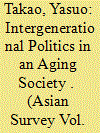| Srl | Item |
| 1 |
ID:
094209


|
|
|
|
|
| Publication |
2010.
|
| Summary/Abstract |
It is pointed out that the apparent decision of the United States to end development of the Yucca Flat, Nevada repository for permanent disposal of radioactive waste may inadvertently place it at variance with the disposal principles of the International Atomic Energy Agency (IAEA) which caution nuclear nations that "The burden on future generations shall be minimized by safely disposing of high level radioactive wastes at an appropriate time, technical, social and economic factors being taken into account." It is then shown that the IAEA's ten technical criteria for underground disposal can seemingly be met by storing vitrified waste a kilometer underground in the crystalline basement rock of a mid-continent shield, where: (a) it should be invulnerable to redistribution by incompetence, natural disaster, or terrorism and (b) there is no obvious pathway for leakage into the biosphere. Finally, a method is proposed by which the storage impasse may be broken.
|
|
|
|
|
|
|
|
|
|
|
|
|
|
|
|
| 2 |
ID:
186408


|
|
|
|
|
| Summary/Abstract |
Japan’s population is aging faster than any other nation’s, producing many more older voters, and raising an important question related to intergenerational equity. Do older voters prioritize their short-term self-interest at the expense of other generations? I find that the older voters in Japan are surprisingly less self-interested—even less than similarly aged voters in other advanced economies—in maximizing their benefits as service consumers to the detriment of younger voters. This behavior of older voters in Japan is an enigma. To stimulate dialogue about an equitable and sustainable welfare system, I consider a set of structural and institutional factors that may, individually or collectively, help explain the apparently less self-interested preferences of older voters in Japan.
|
|
|
|
|
|
|
|
|
|
|
|
|
|
|
|